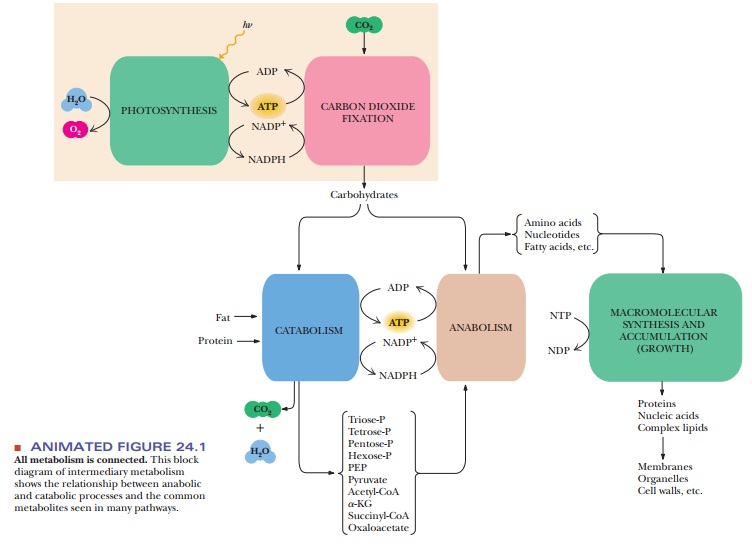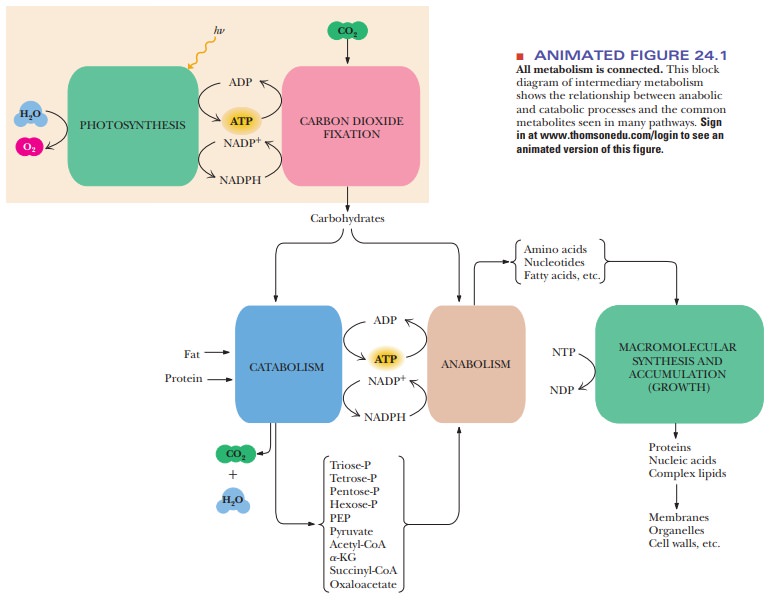Chapter: Biochemistry: Integration of Metabolism: Cellular Signaling
Connections between Metabolic Pathways

Connections between Metabolic
Pathways
We learned about a number of individual metabolic pathways. Some
metabolites, such as pyruvate, oxaloacetate, and acetyl-CoA, appear in more
than one pathway. Furthermore, reactions of metabolism can take place
simultaneously, and it is important to consider control mechanisms by which
some reactions and pathways are turned on and off.
All metabolism is ultimately linked to photosynthesis and the energy
from the Sun (Figure 24.1). The light reactions produce ATP and NADPH, which
are then used to make carbohydrates in the dark reactions. These carbohy-drates
are the source of nutrients for other organisms. ATP and NADPH are the two
consistent links between different forms of metabolism. Besides linking the
light and dark reactions of photosynthesis, they are the most direct link
between catabolism and anabolism (Figure 24.1). Other common molecules, such as
sugars, PEP, pyruvate, and acetyl-CoA, also form a bridge between catabolic and
anabolic processes. We shall now focus on some of the relation-ships among
pathways by considering some of the physiological responses to biochemical
events.

The citric acid cycle
plays a central role in metabolism. Three main points can be considered in
assigning a central role to the citric acid cycle. The first of these is its
part in the catabolism of nutrients of the main types: carbohydrates, lipids,
and proteins. The second is the function of the citric acid cycle in the
anabolism of sugars, lipids, and amino acids. The third and final point is the
relationship between individual metabolic pathways and the citric acid cycle.
When we discuss these broader considerations, we can and should address
questions that involve more than individual cells and the reactions that go on
in them, such as questions of what goes on in tissues and in whole organs.
Summary
All metabolic pathways are related, and some metabolites appear in
sev-eral pathways.
Many reactions of metabolism can take place simultaneously.
The citric acid cycle plays a central role in metabolism, in both
catabolic and anabolic pathways. The breakdown products of sugars, fatty acids,
and amino acids all enter the citric acid cycle.
Related Topics